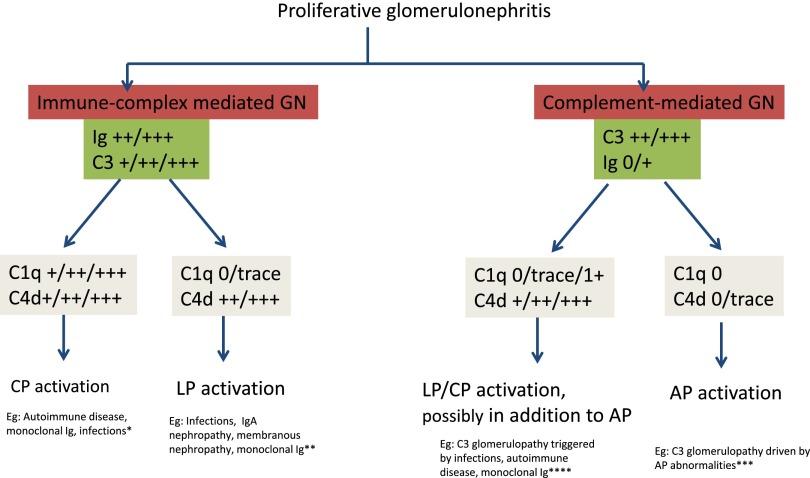Figure 5.
Proposed role of C4d and C1q in the diagnosis of proliferative GN. Immune complex-mediated GN that shows both C1q and C4d indicate CP activation, whereas those that show only C4d and negative C1q indicate LP activation. Complement-mediated GN showing negative C4d and C1q indicates AP activation, whereas those showing negative/trace C1q and positive C4d likely indicate a role for LP and AP activation as well. *Most instances of immune complex-mediated GN with positive C1q and C4d, indicating CP activation, are caused by autoimmune diseases; however, many patients with monoclonal Ig are also positive for C1q. **Some instances of infections, IgA nephropathy, and membranous nephropathy are negative for C1q but positive for C4d and indicate LP activation. ***Most patients with complement-mediated GN are negative for C1q and C4d. These form the bulk of complement-mediated GN and indicate AP activation only. ****In a small minority of complement-mediated GN, there is staining for C4d with no staining for C1q, suggesting LP activation. This is likely caused by association of infections, autoimmune diseases, or monoclonal Ig act as a trigger for complement-mediated GN. On the other hand, this may also indicate masked immune deposits, indicating further studies, such as immunofluorescence after pronase digestion or laser dissection followed by proteomic analysis to identify the masked deposits. In our study, only one out of 30 patients with complement-mediated GN showed C1q.

